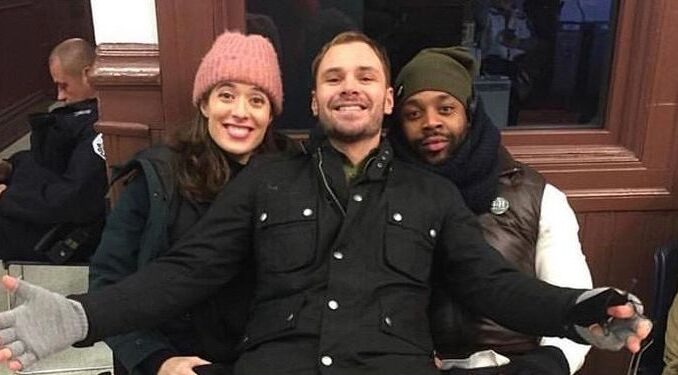
The 2025 season finales of Chicago Med, Chicago Fire, and Chicago P.D. didn’t just wrap up storylines—they tore through every last nerve ending, delivering emotional blows so sharp, they left me breathless. Each show brought its own flavor of heartbreak, and as someone who’s been with One Chicago since the beginning, I found myself crying in ways I didn’t expect. What makes this year’s finales especially powerful is not just what happened, but how deeply personal those moments felt. From whispered goodbyes to life-or-death rescues to betrayals that shook entire squads, each episode delivered a unique kind of pain. So here it is: my completely unscientific but 100% tear-soaked ranking of the One Chicago finales—based on just how hard they made me cry.
At number three is Chicago Med, a show that broke hearts not with explosions or action, but with quiet resignation and the slow collapse of institutional trust. The season had built to a boiling point as the hospital’s ethical boundaries were pushed to the limit, and in the finale, it all came crashing down. Dr. Charles, ever the moral compass, was left reeling after learning that the hospital board had turned a blind eye to a corrupt pharmaceutical deal. But the moment that truly shattered me came when Sharon Goodwin—Gaffney’s foundation and soul—resigned after realizing she could no longer protect her staff from the forces working against them. She stood in her office, alone, packing up decades of memories, and said nothing. No dramatic goodbye. No long monologue. Just silence. That scene hit with a quiet finality that lingered long after the credits rolled. Crockett Marcel’s visible inner turmoil, Dr. Asher’s tears behind a surgical mask, and a hospital staff fractured by betrayal made it clear: the emotional damage here wasn’t loud, but it was deep.

At number two, Chicago Fire delivered a finale that was explosive in every sense—emotionally and literally. The team responded to a chemical fire in an abandoned warehouse, and what started as a routine emergency quickly turned into a nightmare. Joe Cruz was caught beneath falling debris, and although he survived, a young probie didn’t make it out. The image of his empty turnout gear being folded at the firehouse? That’s when the tears came. But the emotional core of the episode wasn’t just the loss—it was the transition. After months of buildup, Chief Boden made the decision to step down, passing the torch to Stella Kidd. Their moment together, in the locker room, was as intimate and impactful as anything the series has ever done. Boden’s voice cracked as he said, “They’ll follow you, Lieutenant. I know I did.” By the time the squad gathered at Molly’s to honor their fallen brother, with a drink raised in silence, I was crying too hard to even follow the dialogue. Chicago Fire reminded us that leadership is earned in pain, and legacy is forged in loss.
But no finale hit harder than Chicago P.D., which earns the number one spot on this list for leaving me in absolute emotional ruin. This season has followed Kim Burgess through one of her darkest professional and personal arcs, and the finale didn’t let up. Burgess, having already been suspended earlier in the season, went off-book in her pursuit of justice against the politically connected and deeply dangerous Reid. The result? A confrontation that spiraled out of control, a leaked recording that painted her as unhinged, and the Intelligence Unit thrown into chaos. Voight, usually the team’s anchor, was at a loss—torn between protecting his people and maintaining control of a unit that was slowly being dismantled from the inside. But it was Atwater who delivered the episode’s emotional climax. In a meeting with Internal Affairs, he stood up not just for Burgess, but for every cop who’d ever been left behind by the system. “She’s the reason people still believe in the badge,” he said. “And if you can’t see that, then maybe you’re the problem.” That speech cracked something open in me. But the final moment sealed it. Voight, unable to face her, left Burgess’s reinstated badge on her doorstep. She picked it up, hands shaking, tears falling, and for the first time all season, allowed herself to hope again. I wept with her.
These finales weren’t just about plot twists—they were about consequences, growth, and identity. Each show pushed its characters to the brink, and the result was a trio of stories that felt deeply human. NBC’s confirmation that all three series are returning next season—along with creative reinventions and larger crossover arcs—makes these finales feel like not just an ending, but the beginning of something more ambitious. Still, before we look ahead, we sit with the heartbreak. Because One Chicago doesn’t just give us heroes—it shows us their pain, their doubt, and their quiet resilience in the face of it all.
